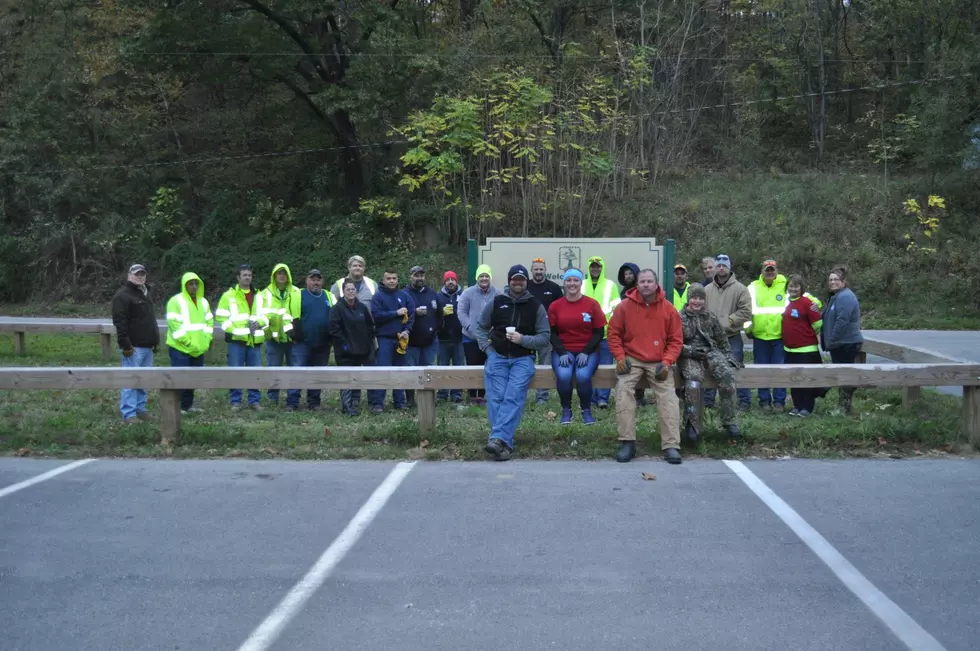
Water Expert Offers Solutions to Hannibal’s Water Worries
Robert Bowcock says the solution to Hannibal’s drinking water controversy is simple. He says if the city council by ordinance prohibits the use of ammonia in the water supply, it will force the Hannibal Board of Public Works to use a safer alternative.
The water expert visited Hannibal for the second time in 8 months. He spoke to nearly 40 people gathered at Finn’s Food and Spirits in downtown Hannibal Thursday evening. Bowcock was invited by a group of concerned citizens who are petitioning city officials to discontinue use of ammonia and switch to other methods of disinfection.
Bowcock is distancing himself from another group that has filed suit against BPW for past violations of excess by-products in the water. He says any damages recovered from the suit will come from the ratepayers; the equivalent of “robbing Peter to pay Paul”.
Hannibal switched to the mixture of chlorine and ammonia after it was fined by the Mo. DNR for excess levels of certain disinfectant byproducts (DBP’s) in 2015.
Toxicologists are increasingly concerned about disinfection byproducts resulting from chloramines. Chloramines is just one of multiple methods of water disinfection. The EPA does not require their use. Bowcock believes the byproducts of chloramines are actually more dangerous. The reason chloramine byproducts are not being regulated is because when the rules were written, chloramine use was not widespread. As usage has grown, so has concern over resulting disinfectant byproducts. He says use of chloramines is only a temporary fix. In a few years, the EPA will begin regulating chloramine byproducts.
Bowcock says the Hannibal Filter Plant is using UV as a primary treatment, a very good method. He believes chlorine is also being used in conjunction with UV, but residuals left in the water require a secondary disinfectant. That's where chloramines comes in.
He says the real issue is organics…total organic carbons… or "dirt" in the water. Chloramination does not take the dirt out. Taking the dirt out is the foundation of purifying the water. Bowcock says carbon filtration, or Granulated Activated Carbon (GAC), is a viable solution. He estimates the cost to install carbon filtration would result in an increase to ratepayers of about $1.25 a month for a family of four.
The Hannibal BPW evaluated options for installing GAC's—a memo issued in January 2016 listed All Service in Decatur, Illinois as the low bidder at just over $85,000. Bowcock says that figure is actually low, but maintains his estimate of $1.25 for the average family is correct for GAC's . Post- contact filters are another option at $325,000 per million gallons of water. He says carbon will also remove a number of contaminants including atrazines found in the Mississippi River.
Bowcock says Hannibal is on a list that is being watched closely by the EPA after the water quality issues in Flint, Michigan. He says lead used in plumbing fixtures and service laterals will leach more with chloramines. Free ammonia mixes with the organics left in the water and creates sludge. He cited the example of Corpus Christi, Texas, where costly chlorine burnouts used to clean out the pipes have become more and more frequent due to sludge buildup. Corpus Christi is turning the ammonia off and going to carbon. One audience member spoke up and stated the Hannibal schools have not been tested for lead for at least 8 years.
Hannibal's methods of lead sampling are suspect, Bowcock says. He says protocol dictates you take samples at the worst known locations. He told the crowd by logging on to Google Earth, he plotted every house BPW used for a sample. He found 1/3 of the samples were actually homes of city staff; not a good representative sample. Bowcock says the regulations are widely misunderstood by many municipalities. A recent national news story says 33 US cities were found to be violating sampling rules.
More From KHMO-AM 1070, News-Talk-Sports









